Inside the nitro coffee revolution brewing in Washington, D.C.
Washington, D.C.'s Chyrus Coffee wants to change the way restaurants and bars serve coffee — one (frothy) cuppa at a time.
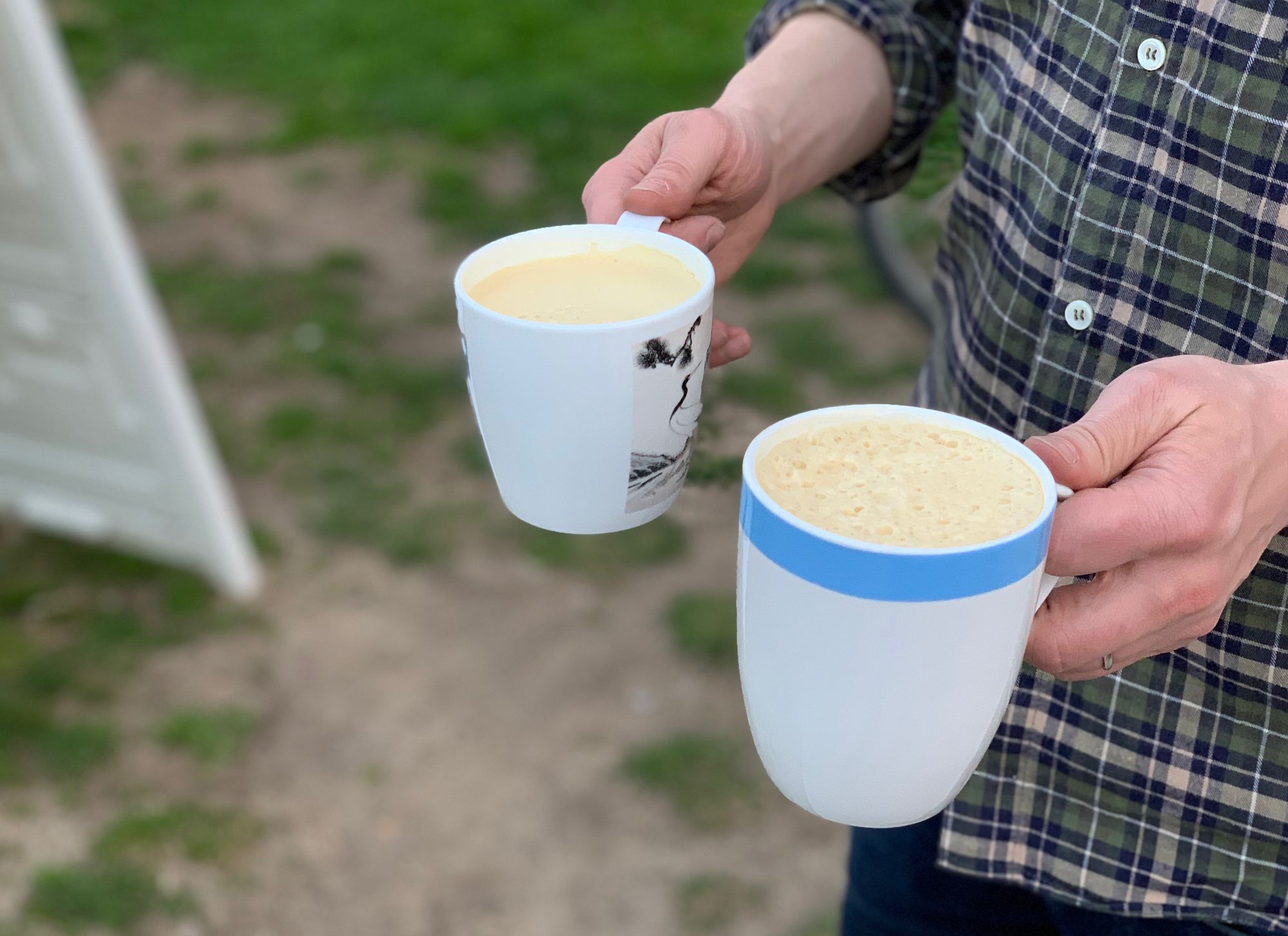
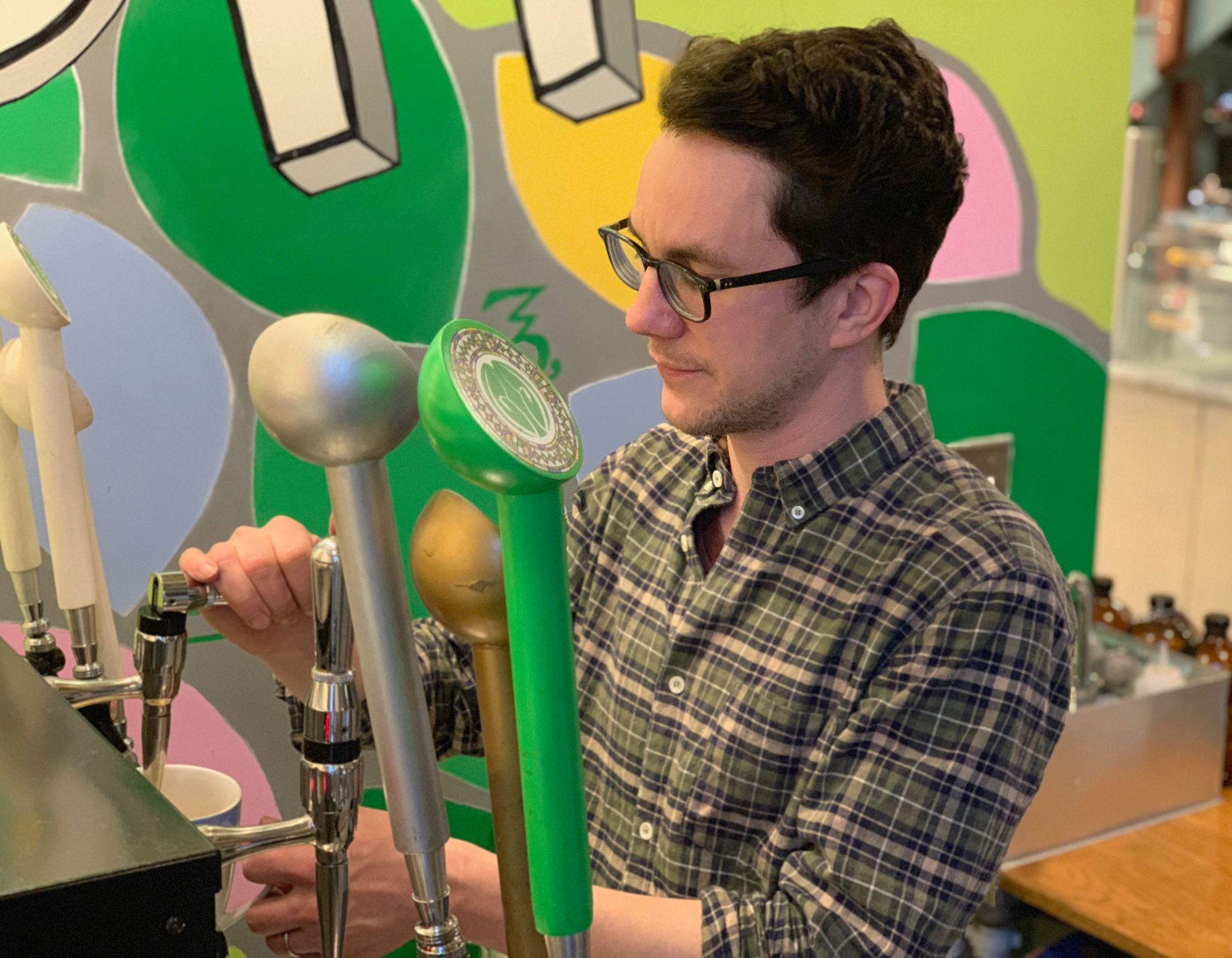
Editor's Note: This is story was originally published on May 13, 2019, on the first edition of JWontheRoad.com as part of the "On the Road" series. In the time since publication, Alchemist Coffee has rebranded as Chyrus Coffee. Catch up with the latest from them on Instagram, Twitter or Facebook.
Tyler Philips wants you to drink better coffee.
The founder and co-owner of Alchemist Coffee Company, headquartered in Washington, D.C., Philips knows from his more than decade and a half in the restaurant and service industry that coffee can (and should) be better across the board.
And he thinks he's found the way to do it.
"Bringing high quality coffee to more people, to a wider audience is why I started doing this," Philips said in an interview at his retail and production facility in the Brookland neighborhood of Northeast D.C.
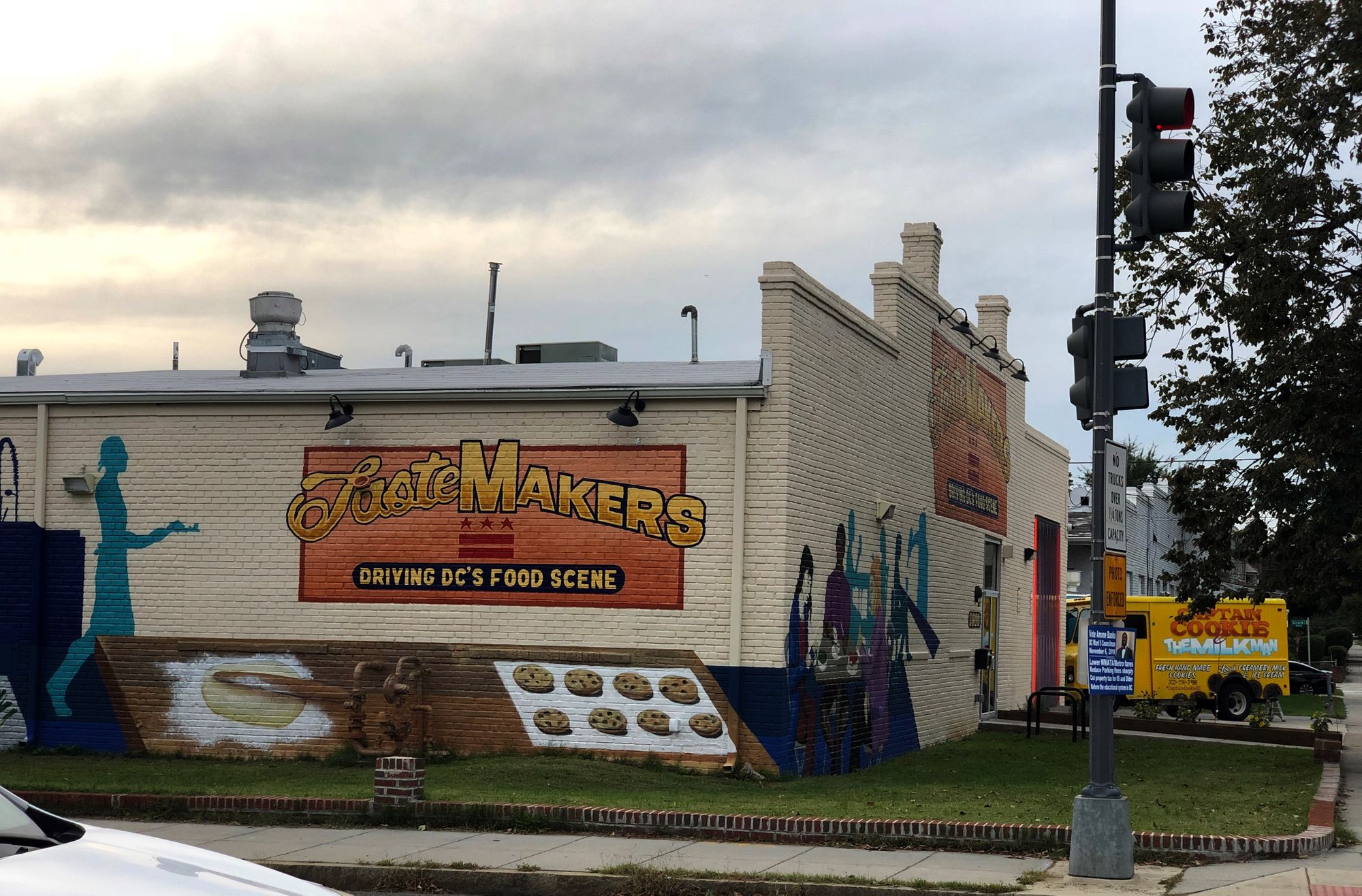
Philips specially brews coffee designed to be charged with nitrogen — commonly referred to as nitro coffee. He works out of Tastemakers, a food and restaurant incubator of sorts, that brings together more than 40 food entrepreneurs in a shared commercial kitchen and food-hall-style retail environment. Philips has been in the space since January 2018.
'Really amazing fruit'
From his time working in restaurants, bars and coffee shops across the D.C. area, Philips saw the problem — when coffee was great, it was exceptional, but with that also came the risk of coffee that was adequate, inconsistent, or bad.
"It's not just this shelf-stable drug that sits in your cabinet that you want to pull out and drink to get some energy," Philips said. "It's actually an amazing fruit with a lot of complexity and a lot of variation depending on where it's grown."
Even as the specialty coffee industry grew across the U.S. and internationally, Philips said there was room for a better product that emphasized the level of quality and passion growers and roasters bring to the product.
"It has a huge variance in terms of flavors that are really, really, really delicious, really, really, really wonderful, but are hard to access right now consistently," Philips said.
From Alchemist's launch in 2015, until late 2018, Philips' coffee was only available cold.
It was a problem he knew he would have to solve.
And last fall, Philips cracked the code: the nation's (presumably) first hot draft coffee. The coffee comes out at 170 degrees Fahrenheit and has a crema-like foam on top from the nitrogen.
Draft coffee — hot and cold — starts to solve the consistency problem that specialty coffee has faced as the industry has pivoted from niche coffee fans to the mainstream.
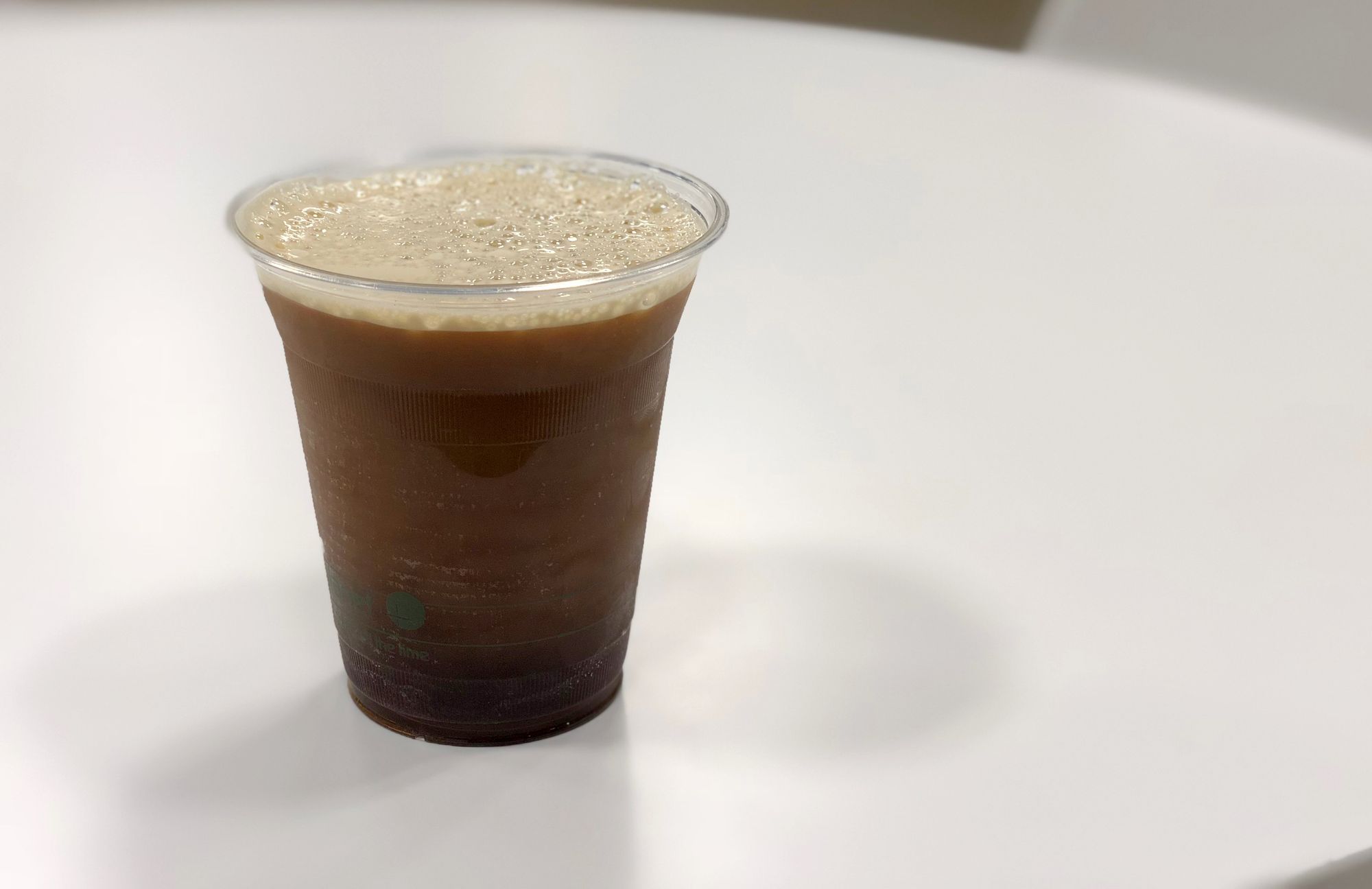
Take pour-over coffee, for instance. A customer picks a specific coffee, usually one that comes from a single origin point (think a single farm in a single country). Then, the barista measures a specific amount of coffee, and a specific amount of water. The barista grinds the whole bean coffee to a specific size, based on the coffee's individual characteristics. Then, pours hot water (usually at a specific temperature) over the ground coffee through a device that looks like an open-face drip coffee maker at a certain rate of speed over a certain amount of time. The customer pays a higher-than-average price for that coffee with almost no guarantee that they will like the flavor of the coffee or that that barista did every step of the process perfectly.
"You just have to hope that the coffee's fresh, that it's roasted well, that it's properly developed, that the person brewing it is not going to make a mistake and that the grind setting has been dialed in," Philips said. "You just kind of have to hope that all those things are true, and yeah, at great shops a lot of the times they are. But sometimes they're not."
Philips said draft coffee is "right up there with the best of pour-overs," and overcomes several of the dilemmas that specialty coffee pour-overs present — namely the ability to taste a coffee before committing to a hefty price tag.
"If you see a menu of pour-overs, you can't taste a pour-over before you drink it," Philips said. "Having the ability to taste something before you shell out four, or five, or six bucks for it is nice."
In addition, Alchemist's batch brewing and production method cuts down on waste. Kegged coffee also lasts up to 30 days, "so you don't need to worry about throwing out coffee every night."
Philips sources his coffee from four roasters — Ceremony (in Annapolis, Maryland), Heart (in Portland, Oregon), Counter Culture (in Durham, North Carolina) and Tim Wendelboe (in Oslo, Norway) — and brews it hot to specifications he has ironed out over the now nearly four years that he's operated as Alchemist Coffee.
Then, he flash chills it. Putting it in a keg and charging it with nitrogen preserves the coffee for a longer duration by removing the oxygen from the keg, prohibiting the coffee from going stale or losing its freshness.
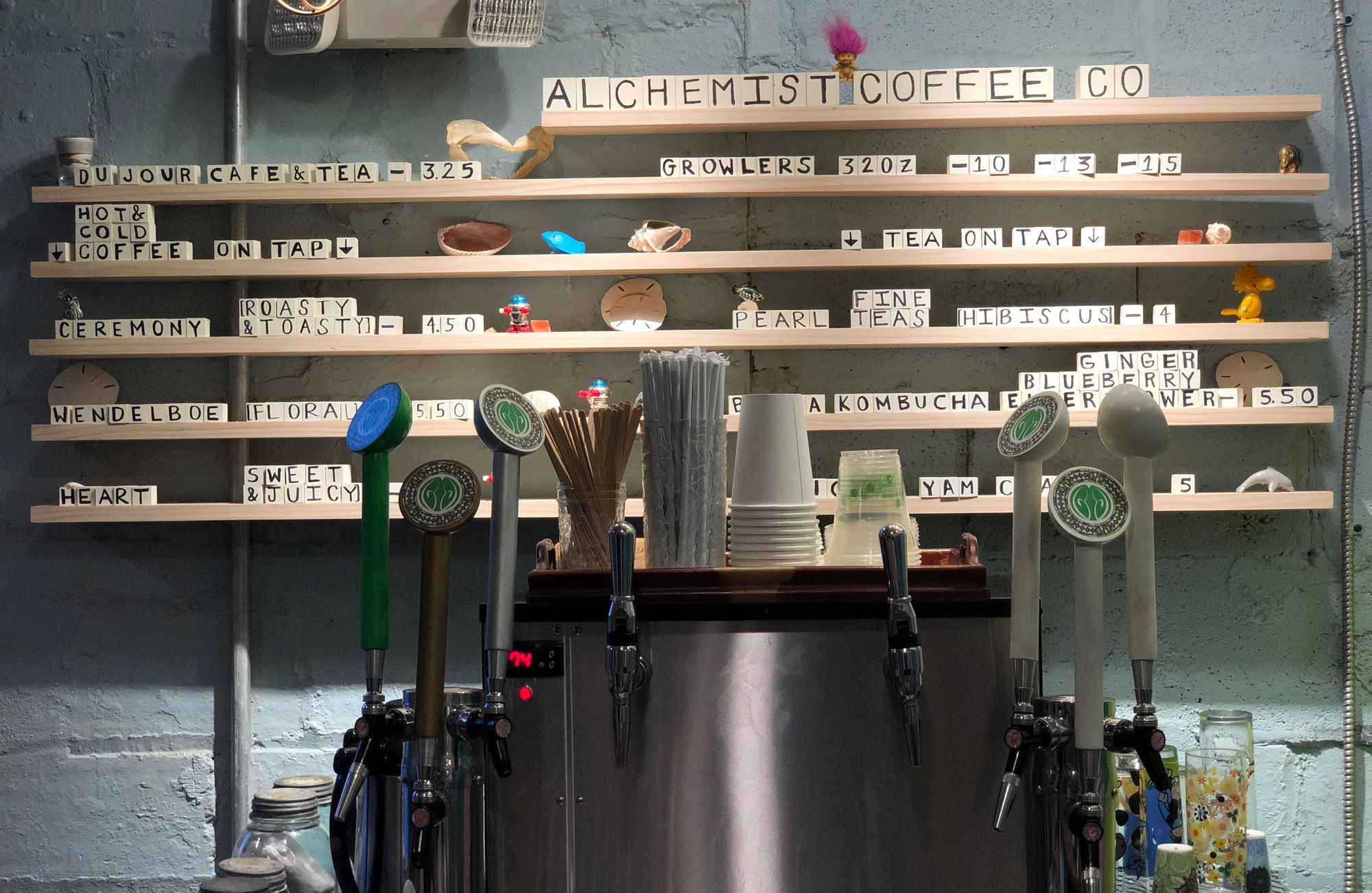
A server or bartender — at one of his more than 50 wholesale accounts or at his retail stand at Tastemakers — pulls on a standard beer tap outfitted with a nitro tip. And out comes the coffee, cold, crisp and as fresh as the day it was brewed. In addition, the coffee boasts a Guinness-style nitrogen foam head on top, giving it a beautiful appearance.
Addressing cold brew
Cold brew coffee — brewed by steeping ground coffee in room temperature water for long periods of time — has been around coffee circles for the better of the last decade, but hit the mainstream scene in 2015 when Starbucks introduced it nationwide. Some shops — like the Gregory's Coffee chain — serve exclusively cold brew as their iced coffee offering.
Also in 2015, Portland, Oregon's, Stumptown Coffee Roasters started charging their cold brew with nitrogen to provide the same frothy texture Alchemist's coffee presents.
But the end products, Philips said, are different.
By brewing hot, Philips said Alchemist Coffee extracts the flavors that make coffee taste like coffee in the most effective and efficient way.
"A lot of the soluble compounds which make up the flavor of coffee do not dissolve well in cold water," Philips said.
Chemical elements and compounds in coffee that make the drink taste bitter, acidic, sweet and complex don't dissolve effectively in cold water. The two main selling points for cold brew to many customers — an extra caffeine jolt and a lack of bitterness — are compelling. But well-roasted and brewed coffee can provide a more-balanced beverage that brings out flavors the day-to-day coffee drinker may never have known were possible.
"One of the reasons why cold brew tends to be stronger than other coffees is because caffeine is very water soluble," Philips said. "If you want to get a beverage that tastes like coffee, you have to use a lot more ground coffee in the [cold] water than you otherwise would with a hot coffee."
The end result, Philips said, is something that mimics some of the flavors of coffee, but with more extracted caffeine due to the solubility.
Cold brewing coffee, however, can help soften some flaws in coffee, Philips said.
“If you have a high quality coffee that tastes amazing, and then you cold brew it, you’re not going to get a lot of that flavor,” Philips said. “You might get hints, or traces, of it, but if you have coffee that has certain flaws in it, if you cold brew it, it will taste fine. So, cold brew certainly has its uses.”
For Philips, Alchemist is about more than delivering that caffeinated product — it’s about introducing people to an incredible coffee experience.
“If you’re trying to introduce people to amazing coffee that will give them a nice, exciting experience that will open up their minds a little bit to what coffee could be, you have to brew it hot,” Philips said.
Introducing hot draft
While Philip believes he has a superior product to cold brew when it comes to the nitro coffee market, there was still something missing from his product suite: hot coffee.
“I knew, OK, I have to find a way to serve it hot,” Philips said. “Can I build something? Is there a way for me to heat it up? What can we do?”
The solution came when Philips discovered a draft technician headquartered outside of Chicago who created a hot draft system to serve hot chocolate at a stadium.
After the discovery, Philips brought a keg of his coffee to the technician's headquarters to test it out and “it came out really well.” Enter hot draft coffee.
The machine is still undergoing wider production as of this writing. Philips has one of the first units produced at his retail location at Tastemakers.
“It tastes great, and it just gets around so many of the things that stand in the way of restaurants serving high-quality coffee,” Philips said. “The cleaning is very minimal, the training is very minimal.”
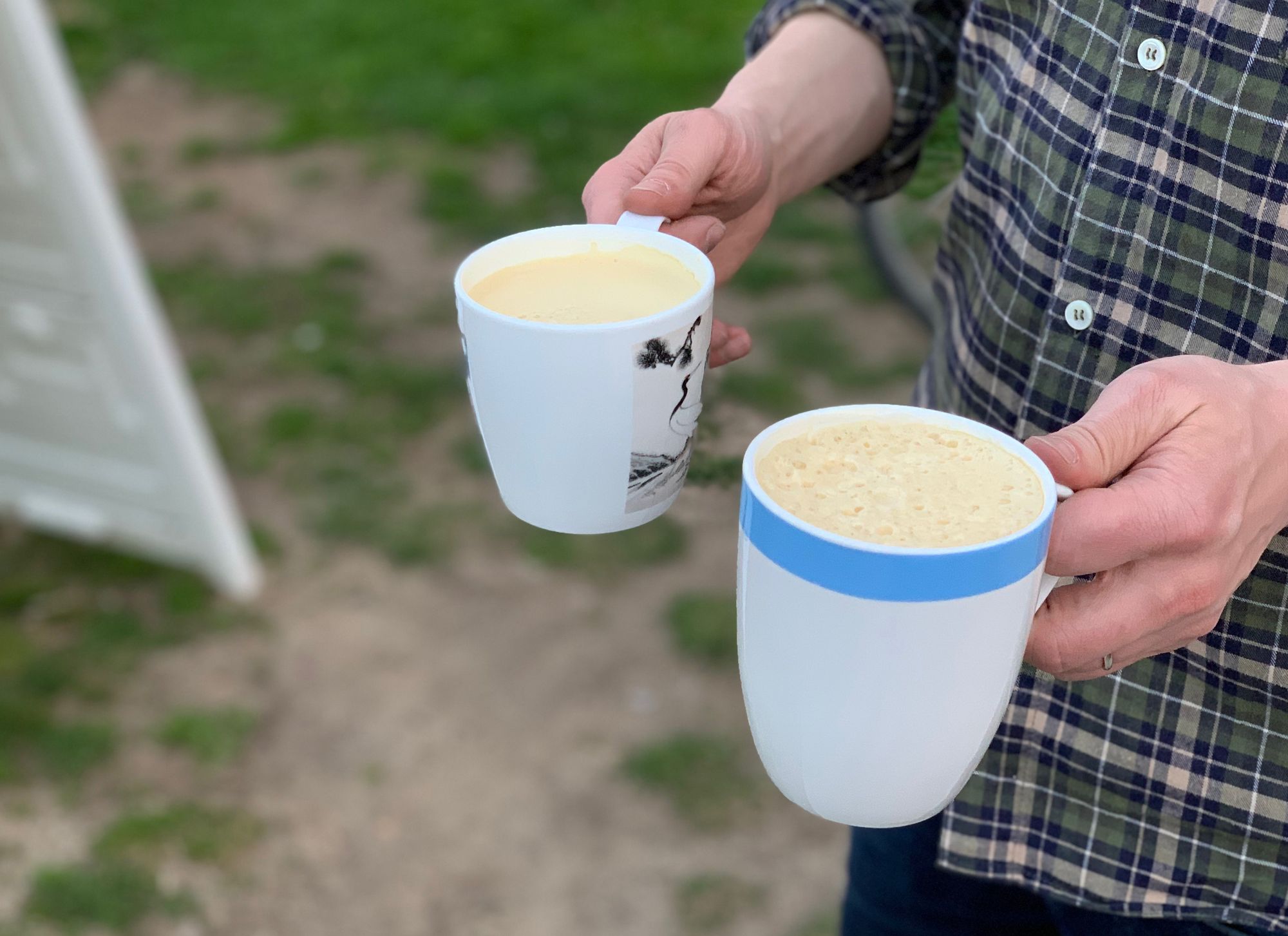
Serving the restaurant industry
The potential to bring hot draft coffee to a wider audience solves two key problems in the food and beverage industry, Philips said: a lack of mass-market, high-quality specialty coffee, and the inability for restaurants to serve great coffee with the ease of other beverages.
In the restaurant industry, even some of the most renowned restaurants struggle to be able to devote the time and energy necessary to brew specialty coffee well, Philips said.
The coffee industry — namely through specialty coffee shops — has grown into one where precision shines, and the flavor of the beverage you’re served is dependent upon that precision. In restaurants, that time and attention to precision is ordinarily reserved for the food — not for the coffee.
“Despite the best of intentions, despite everything else on the menu having a lot of thought and passion and craft put into it, coffee kind of falls by the wayside 99.9 percent of the time," Philips said.
But hot draft — and the original nitro iced coffee offering — solve that problem for restaurants. Alchemist Coffee brews coffee with the requisite amount of precision, puts it in a keg and charges it with nitrogen.
All a restaurant has to do is hook that keg into its tap system.
“The infrastructure and training to serve delicious coffee is already there,” Philips said. “If we do all the hard work of sourcing high quality coffee, making sure we brew it when it’s fresh, pay close attention to it, use the right water, use a good grinder, then restaurants and bars can serve a high quality coffee using systems already in their wheelhouse.”
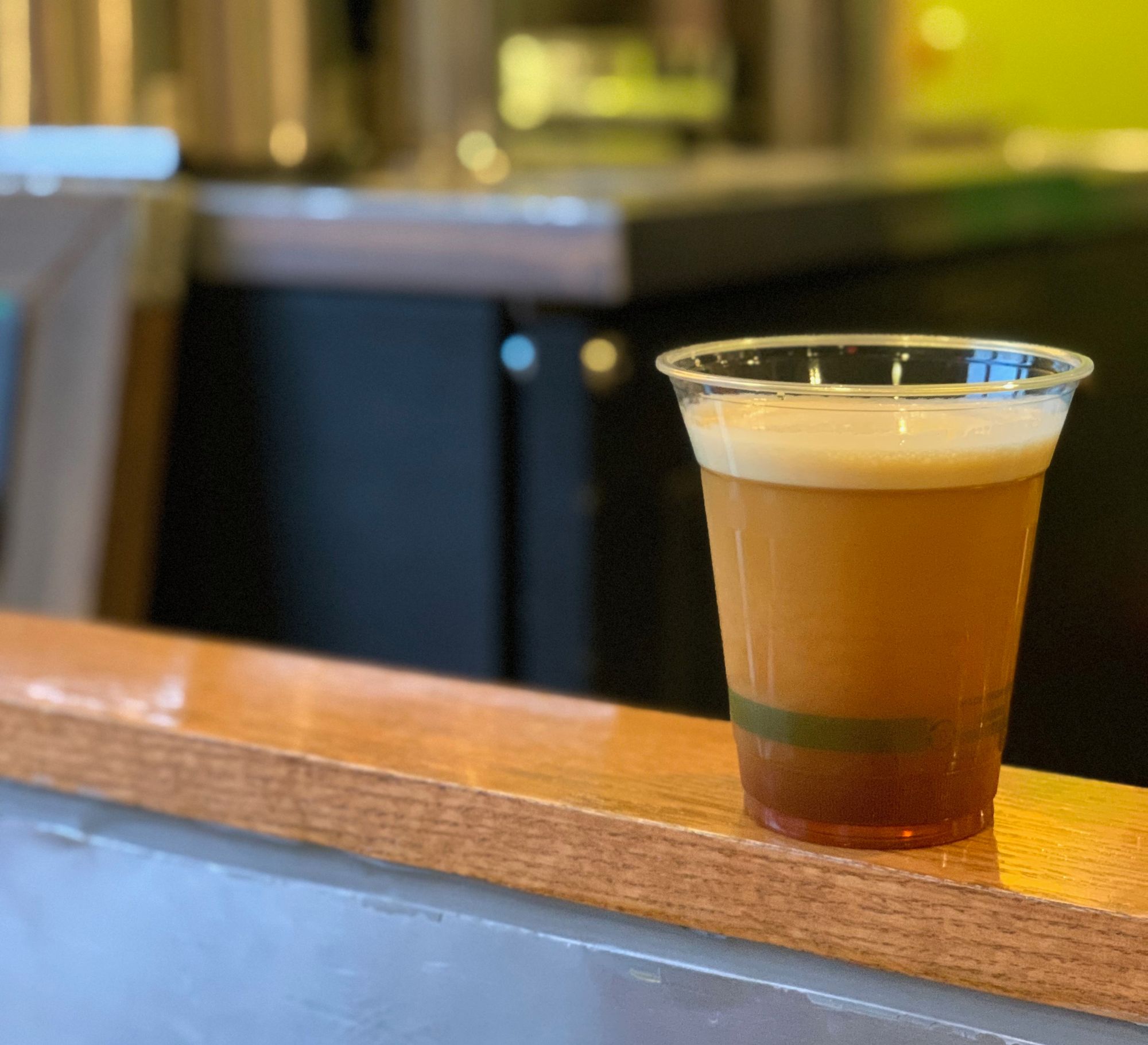
Serving high quality coffee from roasters like Wendelboe and Heart would be akin to restaurants serving high quality wine and beer — something most restaurants already do quite well, Philips said.
“Restaurants don’t make their own beer, they don’t make their own wine, but they have a ton of delicious wine and beer there,” Philips said. “[With hot and cold draft coffee] restaurants can focus on food, and coffee can just be one of those things where they can offer a high quality product without having to literally brew it themselves.”
In addition to saving servers, bussers and other restaurant staff time, a product like Alchemist Coffee’s offerings offers a visually attractive product over a standard cuppa. The coffee, both hot and cold, pours with a thick Guinness-like froth head.
“It has a beautiful appearance, and people respond to it,” Philips said. “It looks special, it doesn't just taste special, which is important in the world that we live in.”
‘A step in the right direction’ for specialty coffee
For the specialty coffee industry, hot draft is “a step in the right direction” toward access to high quality coffees in the mass market, Philips said.
Getting those high quality coffees in front of as many consumers as possible, though, is a challenge even the largest and most successful specialty coffee companies haven’t cracked yet. Some coffees that win international competitions sell for more than $100/pound green (or raw), but the average consumer doesn’t have the equipment to brew them for their money’s worth at home.
So, specialty coffee companies are investing a “ton of money” in ways to make that happen, Philips said.
“There’s a ton of money being put into specialty instant coffee, there’s a ton of money being put into pods, like specialty pods — not Keurigs, but getting high quality coffee and putting it into a pod,” Philips said.
And while work on those products continues and may see some results down the road, hot draft is a way for restaurants, bars, and coffee shops to cross that bridge now — at least with the coffee Philips offers. (Tim Wendelboe, a Nordic roaster whose coffee Alchemist carries and serves hot and cold, won the World Barista Championship in 2004 and the World Cup Tasters Championship in 2005.)
Hot draft can lay the groundwork for a world where baristas are more like sommeliers, instead of brewers, Philips said.
Now, in coffee shops across the country, baristas generally spend most of their time — both behind the bar and in trainings — on technical skills, but with a company like Alchemist supplying precisely-brewed and quality-controlled coffee on tap (hot and cold), those same baristas would be able to spend more time on studying the characteristics that make coffee special and truly embrace a sommelier-like position.
“To me, this hot draft coffee machine is a step in the right direction, and it tastes way better than any pod that I've ever had,” Philips said. "I give people a taste of it and they’re like ‘I had no idea coffee could taste like this.’ That’s exactly what I want to hear.”
From Mockingbird to Alchemist
Philips has worked in restaurants and coffee shops since he was 15 years old, and later got experience in bars. Those jobs, he said, formed both the business case for what became Alchemist Coffee, and the passion that went into the product.
In college, while attending Longwood University, Philips worked at a bakery literally called "The Bakery" that taught him about quality and integrity in the product.
“Incredible bread, incredibly good wine and beer, in Farmville, Virginia, at a time where there was nothing,” Philips said. “That kind of introduced me to good food, and having integrity for what you do in the food industry, and having pride in what you do, and not taking the easy route.”
Fast forward several industry jobs later, Philips became a bartender/barista at Mockingbird Hill — a now-defunct sherry-focused bar in Washington, D.C.’s Shaw neighborhood. In addition to sherry, though, Mockingbird Hill opened in the mornings on weekends and had a coffee program curated by Cory Andreen — 2012 World Taster's Cup Champion and co-owner of Motel Beer & Coffee in Berlin.
On any given Saturday, Mockingbird Hill had nearly two dozen specialty coffees from all over the world available to serve via pour over. Customers could also purchase coffee cocktails, a weekly coffee of the day and nitro iced coffee.
“It wasn’t perfect, but oh my God, it was way ahead of its time,” Philips said.
The best seller though, for that coffee program, was the nitro coffee.
When Mockingbird Hill ended its coffee program, Philips knew his next move: take nitro coffee wholesale to serve the same industry he had spent so much of his life in.
With the purchase of some equipment, and the creation of a production space in the kitchen of his apartment in Alexandria, Virginia (where he lived with his wife, Heather), Alchemist Coffee was born.
"We converted the kitchen to the production space because the oven had a 220V plug which I needed for my brewer," Philips said. "That meant our actual cooking had to be done on the grill outside or on our single convection plug-in burner."
In the beginning, however, Philips continued to work multiple jobs — including bartending while he got his company off the ground.
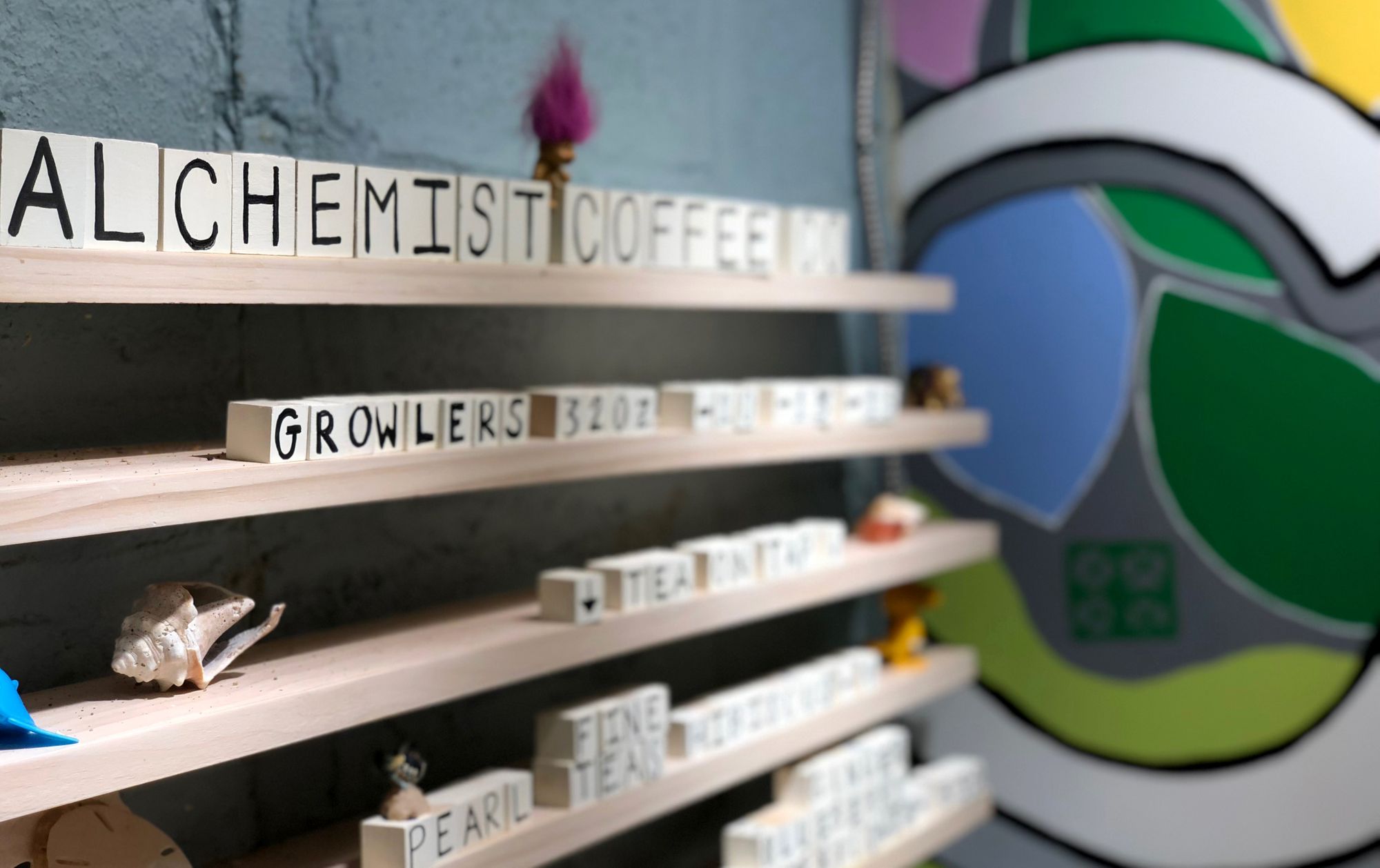
"I started off doing this coffee company part time," Philips said. "I was bartending. It was difficult to do — working in the evenings and then trying to drag yourself out of bed in the mornings to brew and sell and deliver coffee. It's two different extremes."
Eventually, after about a year and a half, Philips "was burnt out" and had to decide if he "wanted to continue to pursue bartending or try to make this idea actually work."
He left his service industry jobs to take Alchemist Coffee full time.
In February, he brought on a partner to help with the day-to-day operations of Alchemist Coffee. Aaron Banschick was Philips' employee first, but later bought into the business to support Philips' vision.
"It's great to work with someone who shares my vision for what great coffee service can look like," Philips said.
Philips, his wife and their newborn child now live in a D.C. apartment not far from his space at Tastemakers. It has a fully-functioning kitchen.
Looking forward
Now that Banschick has joined the business, Philips' main focus continues to be "brewing and selling good coffee," but that doesn't mean that's all to expect from the future of Alchemist Coffee.
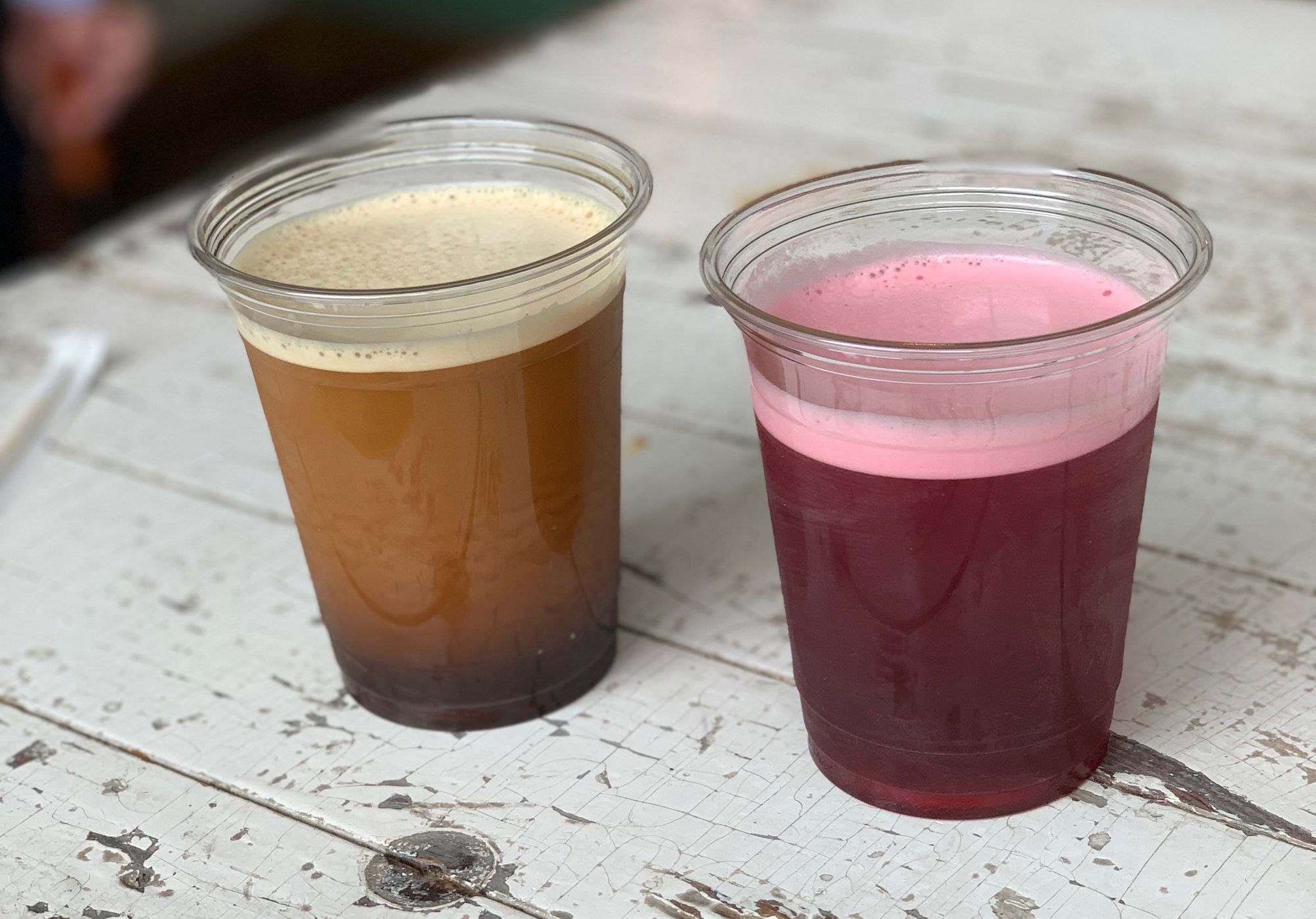
The company's more experimental offerings are on tap at their Tastemakers retail facility, including a hibiscus draft tea, a seasonal chai, three coffees and a kombucha. Two coffees, from Heart and Wendelboe respectively, are also available on the hot draft system.
Last month, Alchemist released its first wholesale tea offering — a draft hibiscus tea to The Coffee Bar. The Coffee Bar, which has carried Alchemist Coffee offerings since July 2017, has two locations in D.C.
"The hibiscus tea is something extra we do for fun," Philips said. "We've been serving it for a year at our retail booth, and due to the positive response, we figured it'd be a nice add-on for our wholesale customers."
With hot and cold draft coffee (and eventually tea), Alchemist Coffee and Tyler Philips are still rooted in just one focus: "bringing high quality coffee to more people."
